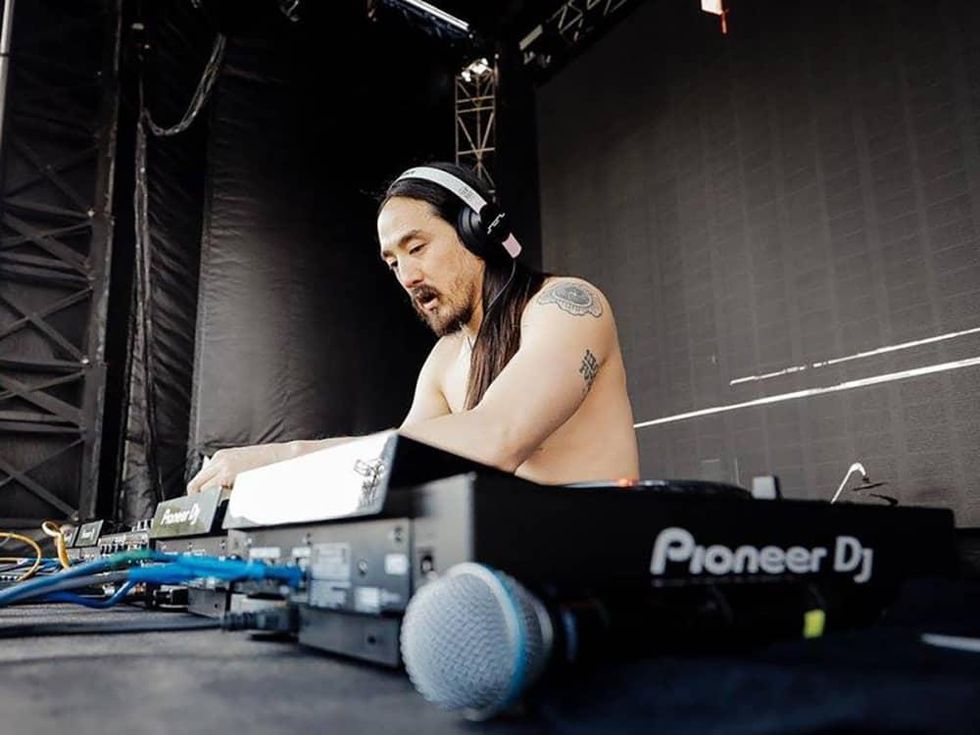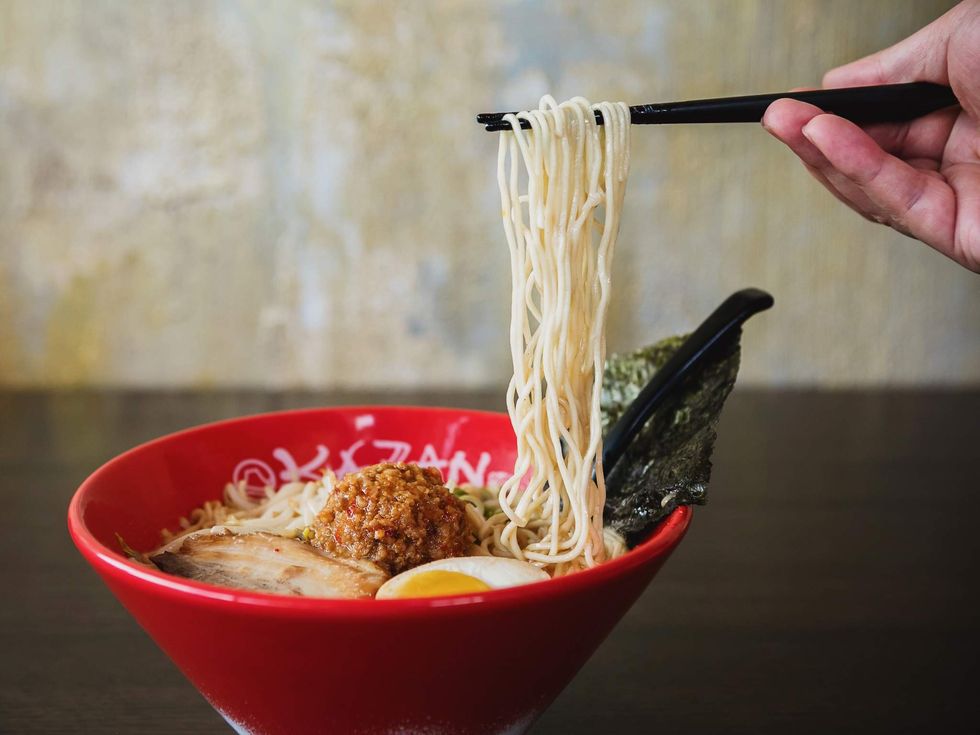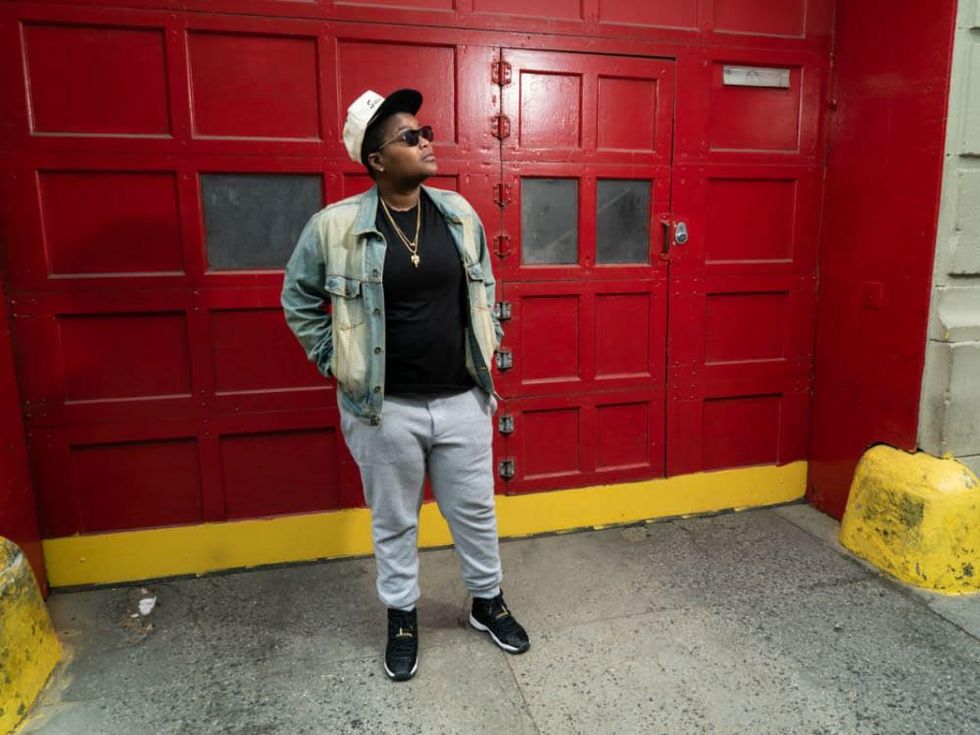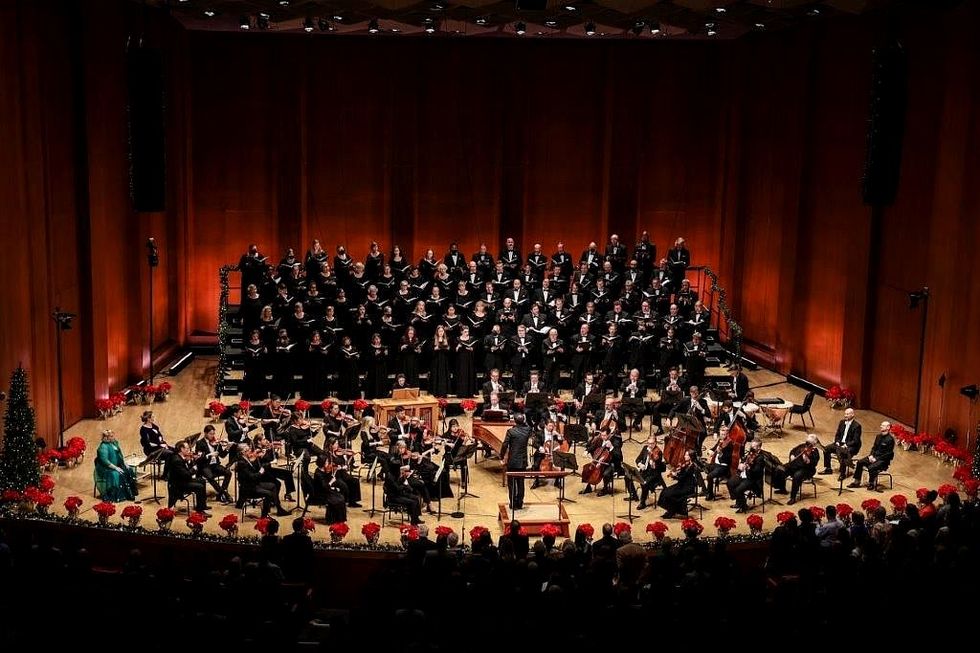The CultureMap Interview
A legend's daughter expose: How The Flintstones, Easter eggs & hair becameLeonard Bernstein muses
 Jamie Bernstein knew her father was famous during an episode of The Flintstones,when Fred, Wilma, Betty and Barney were on their way to see Lenny Bernstone atthe Hollyrock Bowl.
Jamie Bernstein knew her father was famous during an episode of The Flintstones,when Fred, Wilma, Betty and Barney were on their way to see Lenny Bernstone atthe Hollyrock Bowl. Leonard Bernstein with his daughter, Jamie, and his son, Alexander
Leonard Bernstein with his daughter, Jamie, and his son, Alexander Jamie Bernstein thinks that Mass was one of her father's biggestaccomplishments. Two excerpts will be performed at this concert.Photo by © Steve J. Sherman 2008
Jamie Bernstein thinks that Mass was one of her father's biggestaccomplishments. Two excerpts will be performed at this concert.Photo by © Steve J. Sherman 2008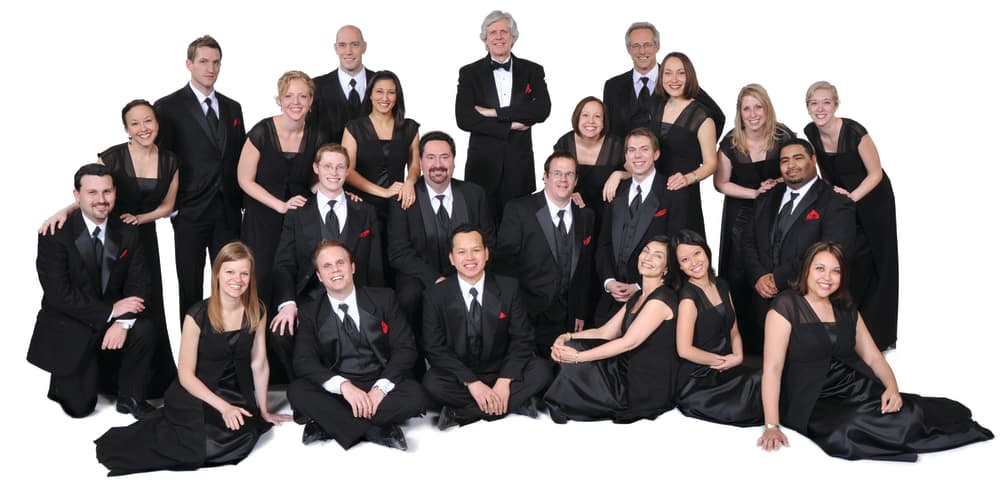 The Houston Chamber Choir presents "Music in the Key of Joy: The Music ofLeonard Bernstein" with special guest Jamie Bernstein on Saturday at 7:30 p.m.at The Church of St. John the Divine.Jeff Grass Photography
The Houston Chamber Choir presents "Music in the Key of Joy: The Music ofLeonard Bernstein" with special guest Jamie Bernstein on Saturday at 7:30 p.m.at The Church of St. John the Divine.Jeff Grass Photography
If you've ever pondered what it would be like to chat with a deceased legend from beyond the grave, the Houston Chamber Choir is doing the next best thing: Putting Leonard Bernstein's daughter Jaime on stage to recount stories that only a child would know. The composer may have died in 1990, but his influence can be felt strongly in so many facets of the orchestra world and music composition.
Alongside Aaron Copland, Leonard Bernstein is a pivotal voice of American classical music of the 20th century. The many recordings that stem from his time as music director of the New York Philharmonic are still considered to be the "it" interpretations of iconic repertoire by music fans.
At 7:30 p.m. Saturday at The Church of St. John the Divine, the choir will pay homage to Bernstein with a concert including Chichester Psalms, selections from Mass, Almighty Father, Simple Song and songs from Candide, On the Town, West Side Story and Wonderful Town.
CultureMap chatted with Jamie Bernstein on the phone ahead of her visit to learn about her and her father, who succeeded in bringing popular styles into the classical realm.
CultureMap: As a child, was there a moment when you realized that in fact, your father was a living legend?
Jaime Bernstein: Yes! There's a funny story that my siblings and I love to tell.
When you are growing up, you don't have objectivity or frame of reference for your parents. They are just your parents.
"When my father announced that he didn't want to follow in his father's footsteps, that he wanted to be a musician, that wasn't received well at all."
We didn't understand the extent of our father's fame until one day when we were watching The Flintstones. Fred, Wilma, Betty and Barney were on their way to see Lenny Bernstone at the Hollyrock Bowl.
That's when I knew my father had hit the big time. It must have been the first run of The Flintstones, which I think started when I was nine, but I've never been able to find a copy of those early episodes.
CM: If I remember correctly from my studies, your grandfather, Sam Bernstein, was a Talmud scholar. We see Jewish influences in your father's compositions like Chichester Psalms, The Dybbuk, Mass and Kaddish. Also, the birth of the Israel Philharmonic Orchestra was of particular importance to him.
Was your father religious? Did you grow up having Shabbat dinners and going to temple, or were these influences more cultural?
JB: As a vocation, yes, Sam was a Talmud scholar, but he was also a business man.
Sam was part of a group that escaped from Russia and landed in the United States in 1917 with very little money in his pocket. He hooked up with relatives in Hartford, Conn., then moved to Boston where he made sheitels.
Sam started his own company, sold hair products first and then expanded to cosmetics. He was proud that he built up a successful business, one that he wished he passed on to his son. That would have been his greatest gift: A solvent business for his children.
When my father announced that he didn't want to follow in his father's footsteps, that he wanted to be a musician, that wasn't received well at all.
CM: I know where this is going. Sam wasn't pleased that his son would consider something financially unstable?
"After my father became an overnight household name, my grandfather said in an interview: 'How was I supposed to know he would turn into Leonard Bernstein?' "
JB: Here's why: In rural Russian villages, being a musician was like being a homeless person. You just walked from village to village playing weddings and bar mitzvahs earning very little money, usually from people throwing a few coins your way.
Sam was very resentful and refused to contribute to the cost of piano lessons for my father. He didn't want to encourage this "useless" career, as he put it.
CM: What happened when your dad suddenly became famous on that fateful New York Philharmonic evening when the conductor scheduled to appear became sick and your dad had to step in last minute?
JB: It's a funny story. After my father became an overnight household name, my grandfather said in an interview: "How was I supposed to know he would turn into Leonard Bernstein?"
Their interests intersected at temple. Though my dad did attend services as a kid and had a religious upbringing, in adulthood he remained connected to Judaism in his own way.
My mother was Catholic so we grew up with both Christmas and Hanukah, Passover and Easter. We would sing Christmas carols, have Passover seder and have Easter egg hunts.
He did struggle with his own faith and I think the way he connected and repaired that discord with my grandfather was through using religious texts in his music.
CM: Leonard Bernstein is often not described as a teacher, but as a student who had a passion for learning. He had an impulse to share his curiosity for knowledge with others.
"His ability to engage and grab his listeners is an amazing thing."
His Young People's Concerts, some of which I watched as a child, presented works and composers of substance like Mahler, Shostakovich, Ives, Hindemith and Strauss — the last broadcast was of Holst's The Planets.
Today's education concerts are much different, and often avoid the big masters in favor of, for a lack of a better term, "accessible" music. How would your dad react to this?
JB: As someone who also designs education programs, I have given tremendous thought on how things are done now and how my father used to do them. The more I learn, the more I am in awe of how good he was.
It's easy to put together a simple, "accessible" program. It's common for orchestras nowadays not to have enough resources to truly apply themselves. Most often, these concerts are rushed, under-rehearsed.
Also, kids have so many distractions these days. I feel everything is about quick cutting, multitasking and managing 10 things going on at the same time. So education concerts tend to be designed that way due to fear of losing kids' attention.
So you get short piece after short piece, bells whistles, video and everything and the kitchen sink in the frantic effort to be relevant. But in turn, you reach the point of diminished return.
My father had a magic ingredient: Something about his passion made you watch and listen, hypnotized and mesmerized. His ability to engage and grab his listeners was an amazing thing.
"They don't call him a conductor for nothing. He was really like an electric circuit. He caused an electrical current of the musical experience to go around between the musicians and out to the audience."
CM: For music fans, Leonard Bernstein's ultimate legacy is most likely West Side Story and Candide. But what would he think his greatest accomplishment was? And as his daughter, do you agree?
JB: It doesn't hurt that West Side Story is an unbelievable masterpiece — also a double whammy as a famous movie. The music is stunning, and I don't get tired of listening to it. Time after time, I hear something else in its rich and complex textures. It's passionate and rhythmically exciting.
But what he really wanted to do more than anything is to write the great American opera. Maybe he actually did, but he wasn't sure he had written it by the time he died.
There's A Quiet Place, which is very difficult, and about a dysfunctional family falling into darkness. It has a checkered performance history.
But if there's a work that has more of my father in it than any of his other compositions, that's Mass. He used to refer to Mass as "the problem child." It's written for orchestra, vocal soloists, chorus, street chorus and children's chorus and mixed Broadway, rock, marching band, blues and Americana.
Back then in the early '70s, this type of fusion was ahead of its time. It was challenging the currents of music authority, which was more obsessed with tonality and atonality. Needless to say, Mass was controversial.
I only wish he had lived long enough to see it performed at the Vatican. In the last three years, Mass has seen lots of performances. It's coming around.
CM: When I watch old videos of your father conducting, it's amazing how uninhibited he is. He even conducts with his eyebrows. Was he the same on the podium and in private? Or was this an onstage personality?
JB: It was not an act at all. He was a wonderful performer, but the only person he could be was himself. One time he agreed to do a screen test. He was terrible!
On the podium he was completely authentic all the time. He looked like he was dancing. Nothing was superfluous or extraneous. Everything was a message to the musicians, and those musicians talk about this even today.
My father wasn't thinking about how he would look to the audience, but how his body was conveying things about the music in an effort to dialogue with the musicians.
They don't call him a conductor for nothing. He was really like an electric circuit. He caused an electrical current of the musical experience to go around between the musicians and out to the audience.
The Houston Chamber Choir presents "Music in the Key of Joy: The Music of Leonard Bernstein" with special guest Jamie Bernstein on Saturday at 7:30 p.m. at The Church of St. John the Divine. General admission tickets are $40, $35 for seniors, and can be purchased online of by calling 713-224-5566.

